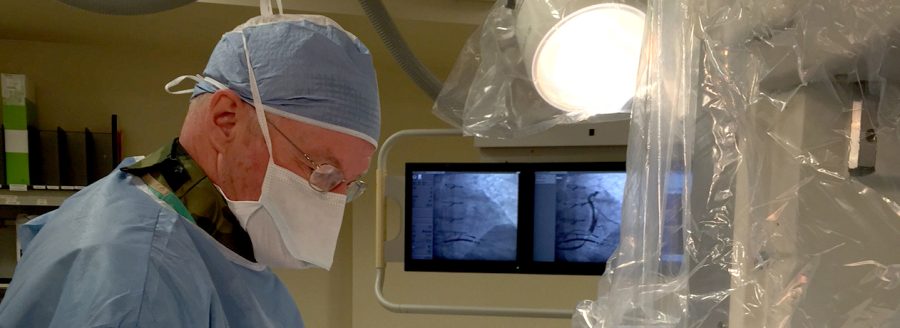
The Cardiovascular Institute of Northwest Florida is one of the few cardiology groups in our region offering comprehensive treatment for cardiac arrhythmias. We are the only cardiologists in the Panama City, Florida area offering cardiac ablations which can be a cure for several common rhythm disorders.
Our Board Certified Cardiac Electrophysiologists are:
Nghia Hoang, D.O.
Saeed Khaja, D.O.
Joe Trantham, M.D.
Common symptoms of cardiac arrhythmias include:
- A fluttering in your chest.
- A racing heartbeat (tachycardia)
- A slow heartbeat (bradycardia)
- Irregular heartbeat, skipping a beat or a pause between beats.
- Chest pain.
- Shortness of breath.
- Lightheadedness.
- Dizziness.
- Fainting (syncope) or near fainting
For diagnosis and treatment of cardiac arrhythmias, we offer:
- Holter and Event Monitoring as well as Loop Recorder insertion and monitoring for more prolonged evaluation of arrhythmias
- Tilt Table Testing
- Ablation for Atrial Fibrillation and Atrial Flutter with Pulsed Field Ablation as well as radiofrequency and cryoablation techniques.
- Ablation for Supraventricular and Ventricular Tachycardia
- Ablation of Wolf-Parkinson-White syndrome and other Accessory Pathways
- Electrophysiology Studies
- Pacemaker Implantation, Device Monitoring, upgrading of single chamber pacemakers to dual chamber pacemaker and upgrading pacemakers to Defibrillators (ICD)
- Defibrillator Implantation (ICD), Device Monitoring and upgrading to Bi-Ventricular pacing for Cardiac Resynchronization
- Cardiac Resynchronization Therapy or Bi-Ventricular Pacing
For information on the different types of arrhythmias, the National Heart Lung & Blood Institute provides an overview.
To learn more about some of the advancements in diagnosis and treatment that we are involved in here at Cardiovascular Institute, please visit our News section. Here are a few recent stories:
Dr. Hoang introduces the World’s Smallest Pacemaker
New Cryoablation treatment for Atrial Fibrillation
Dr. Hoang discusses how we diagnose heart rhythm disorders:
